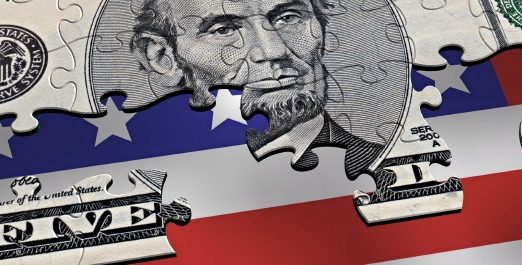GDP slows in the first quarter, job estimate reflects ‘unease’
by April 30, 2025 1:52 pm 524 views

A 0.3% decline in U.S. first quarter Gross Domestic Product (GDP) and an estimated low number of new jobs in April point to a slowing economy. Consumers in March did boost spending in an attempt to buy durable goods ahead of expected higher costs from tariffs.
The U.S. Bureau of Economic Analysis (BEA) on Wednesday (April 30) reported that first quarter 2025 GDP rose at an annual rate of 0.3% in its “advance estimate.” The report also noted that fourth quarter 2024 GDP rose 2.4%. The overall 2024 GDP growth rate was 2.8%.
“The decrease in real GDP in the first quarter primarily reflected an increase in imports, which are a subtraction in the calculation of GDP, and a decrease in government spending. These movements were partly offset by increases in investment, consumer spending, and exports,” the BEA noted in its report.
Following are key data in the GDP report.
• Compared to the fourth quarter, the real first quarter GDP decline resulted from a rise in imports, a slowdown in consumer spending, and a decline in government spending.
• The gain in imports “reflected an increase in imported goods, led by consumer goods, except food and automotive (mainly medicinal, dental, and pharmaceutical preparations, including vitamins); and by capital goods, except automotive (mainly computers, peripherals, and parts).”
• Consumer spending increases were primarily for health care, housing and purchases of durable goods.
Many economists are suggesting that consumers are buying autos, appliances and other big-ticket items ahead of expected higher costs when the impact of Trump Administration tariffs begin to cycle through the economy.
ADP, a nationwide payroll company, reported its closely-watched jobs report Wednesday that suggested only 62,000 jobs were created in April. The U.S. Bureau of Labor Statistics is set to report official jobs data on Friday (May 20). The ADP number would be a significant decline from the 228,000 jobs created in March, and the monthly average of 158,000 jobs created through March.
“It indicates a weakening of the U.S. economy in the first quarter,” Greg Kaza, economist and executive director of the Arkansas Policy Foundation, told Talk Business & Politics when asked about the GDP report. “The first Friday employment report, due in less than 48 hours is more important in determining whether the U.S. economy remains in an expansion.”
ADP Chief Economist Nela Richardson said uncertainty is likely playing into depressed hiring numbers.
“Unease is the word of the day. Employers are trying to reconcile policy and consumer uncertainty with a run of mostly positive economic data. It can be difficult to make hiring decisions in such an environment,” she said.
The BEA also reported Wednesday that personal income rose $116.6 billion in March, up 0.5% compared with March 2024. Disposable personal income —personal income less personal current taxes – rose $102 billion, also up 0.5% compared with March 2024. Personal consumption expenditures were up 0.7%, $134.5 billion. Of the $134.5 billion in increased consumer spending, $79.9 billion was for services and $54.5 billion was for goods.
